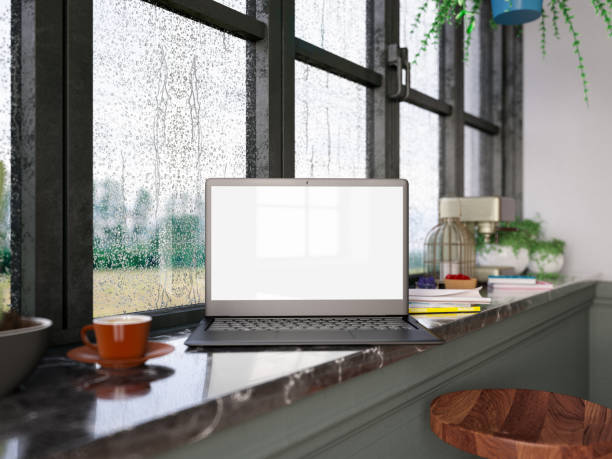How to Fix Laptop Speakers that aren’t Working

Are you experiencing trouble with your laptop speakers? One of the most frustrating things is when you’re trying to watch a video or listen to music, and suddenly there’s no sound. It’s a common problem that many laptop users face, but fortunately, there are solutions available. In this blog post, we’ll explore some causes behind why your laptop speakers that aren’t working might not be working and provide helpful troubleshooting tips to get them up and running again. Whether it’s due to software issues or hardware malfunctions, we’ve got you covered!
Laptop Speakers that aren’t Working – Causes and Solutions
When you’re trying to listen to music, watch a video, or attend an online meeting on your laptop and the speakers are not working, it can be frustrating. There could be several causes for this issue.
One common reason is that the sound might be muted. Check if the volume is turned up by pressing the Volume Up key or by clicking on the speaker icon in the taskbar. Another possible cause of this problem could be outdated drivers. Windows updates may sometimes affect device drivers and make them incompatible with your system.
Another potential culprit for laptop speakers not working is faulty hardware components like cables or connectors that have come loose over time. In some cases, malware infections can also interfere with audio settings making it difficult to hear any sound from your laptop speakers.
If these simple troubleshooting tips don’t work, then try running Device Manager diagnostics tool built into Windows 10 which will detect any issues within your device’s hardware and software configuration related specifically to audio output devices such as headphones or external speakers connected via USB port cable connections etcetera.
How to Fix Laptop Speakers that aren’t Working
When your laptop speakers that aren’t working, it can be frustrating and inconvenient. But don’t worry – there are a few steps you can take to troubleshoot the issue and get your speakers up and running again.
Firstly, check that your volume isn’t muted or turned all the way down. It may seem obvious, but it’s easy to overlook this simple fix. If that doesn’t work, try plugging in headphones to see if they work instead. This will help determine if the problem is with the speakers themselves or with another part of your system.
If neither of these solutions works, then it’s time to dig deeper into troubleshooting. One possible solution is disabling any audio enhancements on your device. To do this, go to Sound Settings > Playback Devices > Speakers/Headphones > Properties > Enhancements tab and uncheck all boxes.
Another option is performing a system restore to roll back any recent changes or updates that may have caused the issue. Simply search for “system restore” in Windows search bar and follow the prompts.
By following these tips and tricks, you should be able to diagnose and solve issues with laptop speakers not working in no time at all!
Disable Audio Enhancements
If your laptop speakers that aren’t working, one potential solution is to disable audio enhancements. This feature, which can improve the sound quality of your system, may also cause conflicts with other drivers or settings that prevent the speakers from functioning properly.
To disable audio enhancements in Windows 10, right-click on the speaker icon in the taskbar and select “Playback devices.” Then, right-click on your default device (usually Speakers) and choose “Properties.” In the Properties window, click on the “Enhancements” tab and check the box next to “Disable all enhancements.” Click OK to save your changes and try playing some audio again.
Note that this method may vary depending on your specific model or operating system. You may also need to update or reinstall your audio drivers if disabling enhancements does not solve the issue. However, it’s worth trying this quick fix before resorting to more drastic measures like a complete system restore or hardware replacement.
Perform a System Restore
If disabling audio enhancements didn’t solve the problem, then performing a system restore might help. This process will undo any changes made to your laptop’s software that may have caused the speaker issue.
To perform a system restore in Windows 10, go to “Start” and type in “system restore.” Select “Create a restore point,” and then click on “System Restore.” Choose the most recent restore point before you started experiencing problems with your speakers and follow the instructions.
It’s essential to note that performing a system restore can sometimes lead to data loss or affect installed programs, so it’s crucial to back up all important files before proceeding.
If using this method doesn’t fix the speaker issue, it may be time to contact support for further assistance. The experts at can provide additional troubleshooting steps specific to your laptop model and help resolve any issues you’re experiencing.
Remember always; backing up critical files is necessary when attempting such fixes as this one.
Read More: HP Laptop Speakers Suddenly Stop Working
Conclusion
If you are experiencing issues with your laptop speakers that aren’t working, there can be several reasons why this is happening. However, the good news is that most of these problems can be easily fixed by following some troubleshooting tips.
By disabling audio enhancements and performing a system restore, you can often resolve the issue of laptop speakers not working in Windows. If none of these solutions work for you or if you need further assistance, it may be best to contact support for additional help.
Remember to always keep your drivers up to date and take care when handling your Laptop’s hardware. With these tips in mind, you’ll be back enjoying your favorite music and videos on your laptop in no time!







